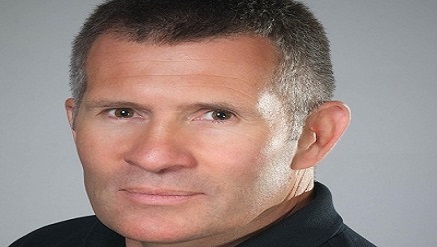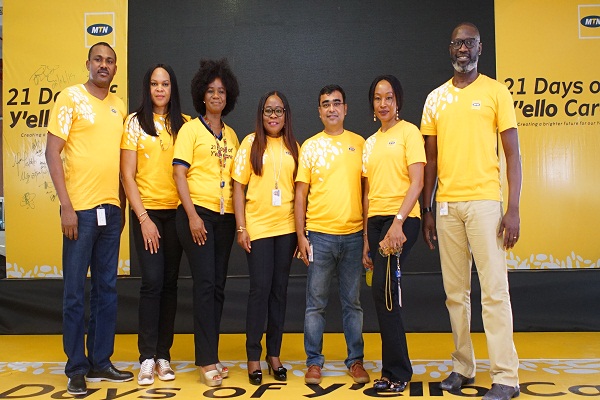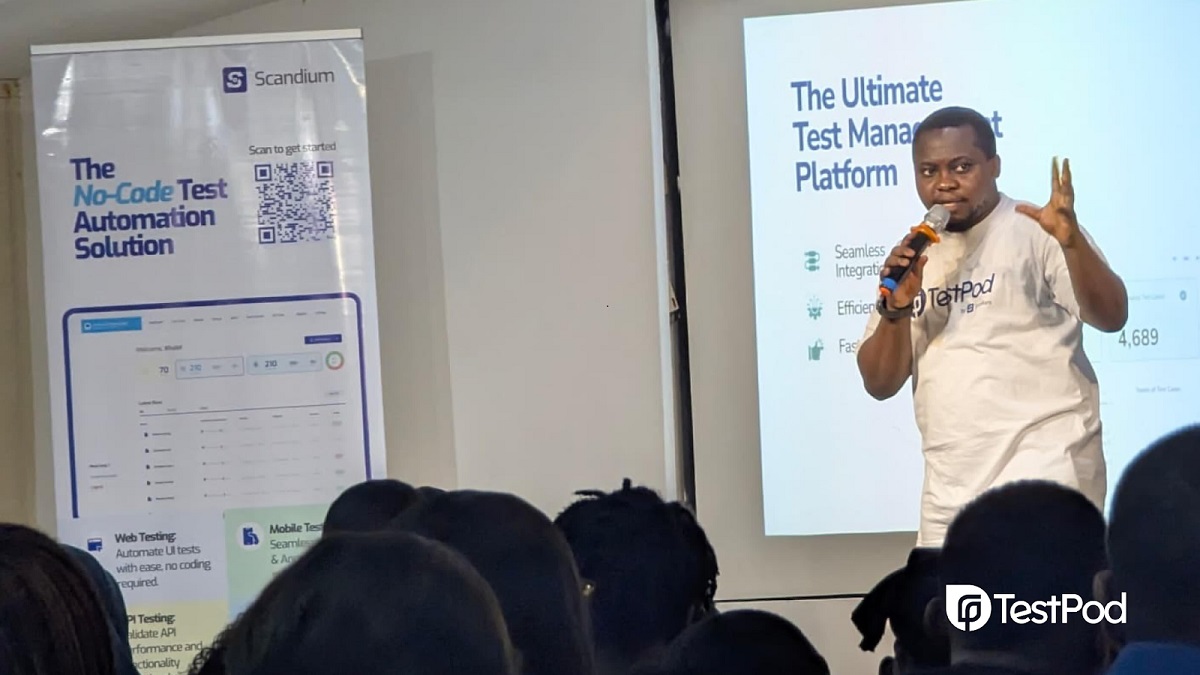Telecom
Trusted Data to Tip Balance between Success, Failure This Year

The wheels are turning ever faster in the telecom industry. For every year, there are new and often unexpected developments.
As we face another eventful year, industry expert David King, CEO of leading data centre and power management systems supplier Flexenclosure, describes which developments had the biggest impact in 2014 and what we can expect from 2015.
A year ago, when I was asked which trends would have a significant impact on the mobile industry in 2014, I predicted that there would be an increasing interest in prefabricated modular data centres to cope with the expected data boom in developing countries.
One year later, we can see that prefabricated modular data centres have proven to be just as flexible, energy efficient and quick to deploy as manufacturers had promised and customers had hoped, and many telecom companies and mobile operators have chosen this path – ACS Angola, Vodacom Mozambique and MTN Côte d’Ivoire being just a few examples in emerging markets.
Another trend that I predicted was a renewed focus on increasing reliability and reducing operating expenses when powering mobile base station sites.
In the last 12 months we’ve seen that this is indeed a critical combination for the specialised tower companies that are increasingly taking over ownership and management of these sites, as the success of their core business depends much more on the long term reliability and cost efficiency of their power equipment than it did to the mobile operators themselves.
Implementation of green power solutions that reduce diesel fuel consumption has been one result of this trend, as well as efforts to increase telecom sites’ reliability and uptime.
So what’s in store for 2015? Here are the three trends I think will have a major impact on the ICT industry in the year ahead:
1. 2015 is the year that prefabricated modular data centres will truly come of age. As the data boom continues to accelerate globally, prefabricated facilities will be increasingly adopted not only by telcos, but also by colocation and global Internet companies worldwide, driven by their ability to be quickly and easily expanded as required.
The data centre colocation market has been quietly putting down roots in Africa and will now enter a growth phase – with prefabricated facilities giving colocation providers the ability to precisely time facility expansion, thus allowing them to maintain a high level of utilisation (return on capital) while avoiding missing out on new customers due to a lack of capacity.
At the same time, global Internet companies will take increasing advantage of the capital-efficient expansion opportunities and risk-free build process offered by prefabricated data centre buildings.
And of course, an additional benefit is that prefabricated data centres can offer very high quality and price competitive solutions compared to traditional brick and mortar buildings. This previously tended to drive demand mainly in developing economies, but we will now see exponential growth in the adoption of prefabricated modular data centre solutions from developing and developed nations alike.
2. In the mobile telecom site arena, we will see specialised towercos continuing to take over responsibility for tower sites from the mobile operators.
For the towercos, operational cost savings are key to driving business profitability, while for the operators it’s network uptime. Power solutions that can reduce diesel-related expenditure in areas where grid power is unreliable or unavailable, while at the same time guarantee network uptime, will therefore be in much demand and drive significant innovation.
To ensure that this combination of operational reliability and guaranteed network uptime can be delivered, power equipment vendors will need to develop long-term partnerships with managed service companies and we will see new energy service companies (ESCOs) start to establish themselves in many markets. T
he broader presence of ESCOs will in turn reinforce the green site power trend, as these companies look to invest in the most cost efficient power equipment for generation and sale of power to the telecom operators under long term contracts.
3. As mobile towerco networks increase in both size and the number of tenants hosted, the availability of trusted site data will drive the difference between profitability and failure. To keep control over and reduce network energy costs (which can constitute up to 60 per cent of operating expenses for tower companies), as well as to prevent system failures, tower companies need to be able to trust their data and will invest in software-driven intelligent monitoring systems that are fully integrated with the power systems right from day one.
These solutions will give site owners and managers the ability to broadly monitor their entire networks as well as to perform deep dive analyses on a site-by-site basis. This will ensure that they understand the status of their equipment at all times, thus giving them full control over their assets and business.
David King, CEO, Flexenclosure, a designer and manufacturer of prefabricated data centres and intelligent power management systems for the ICT industry. Mr King has decades-long experience from C-level work with many international high-tech companies, several in emerging markets.
Telecom
MTN Plans Second Public Offer in Nigeria

Ralph Mupita, president,MTN Group, has announced plans to reduce its shareholding in MTN Nigeria through a public offer after it returns to profitability.

The group aims to cut its stake from 76 percent to 65 percent in line with its longstanding commitment to deepen local ownership, according to ITWeb, South African tech publication.
Mupita, who disclosed the plan during an editors’ roundtable meeting this week, said “The only localisation we have as MTN Group is we have potentially a sell-down in Nigeria at some point in time, approximately 11 percent. This is something we have said long ago, that over time, we would want more Nigerians owning the company, and we are prepared to sell down to 65 percent. We are at around 76 percent,” he said.
The anticipated offer would mark MTN’s second major retail public offering in Nigeria, following its 2021 sale of 575 million MTN Nigeria shares to local investors.
That offer was oversubscribed, resulting in the allocation of 661.25 million shares, including a 15 percent greenshoe option. This reduced MTN’s stake in its Nigerian unit to 75.6 percent from 78.8 percent.
More than 126,000 investors participated in that round, including retail and institutional investors such as Nigerian pension funds, representing approximately 6.5 million contributors.
At the time in 2022, MTN Group announced plans to further reduce its stake to approximately 65 percent from 75.6 percent.
Mupita confirmed that the Group would only proceed with a new offer once MTN Nigeria resolves its negative equity position and resumes dividend payments.
Currently, MTN Nigeria’s shares are trading at N235 per share.
Despite reporting a revenue of N3.36 trillion in 2024, a 36.03 percent bump from N2.47 trillion in 2023, it posted a loss after tax of N400.44 billion, a 192.25 percent rise from N137.02 billion in 2023.,
This negative performance was driven by macroeconomic headwinds, including record inflation and a steep devaluation of the naira, which raised operating costs and wiped out investor value.
MTN Nigeria has fallen behind MTN South Africa as MTN Group’s largest revenue contributor.
However, the Group is projecting a rebound in 2025, citing key drivers such as recent tariff adjustments, operational restructuring, and improving macroeconomic indicators in Nigeria.
Speaking at the roundtable, Mupita highlighted that the Group is anticipating a V-shaped recovery in Nigeria’s service revenue. He pointed to the recent structural reforms, such as the removal of fuel subsidies, the naira stabilisation, and improved dollar availability.
“The continued normalisation of these factors, particularly naira stability, should have positive impacts on consumer spending power and our business operations,” Mupita noted in the Group’s financial statement for 2024 recently.
Telecom
MTN Staff Commission New Set of Classrooms at Iwerekun Community High School

In a remarkable demonstration of corporate volunteerism, MTN staff, through the Y’ello Care initiative, have renovated a school block at Iwerekun Community Senior High School, Lakowe. This effort has restored hope and significantly improved learning conditions for both students and teachers.

The project, led by dedicated MTN employees, is part of the annual Y’ello Care campaign, which focuses on empowering communities through education, digital inclusion, and economic support.
Prior to the renovation, students at Iwerekun Community Senior High School faced challenges, including deteriorating classrooms that hindered effective learning. Recognising the need for intervention, MTN staff stepped in to transform the learning space, creating a safe, conducive, and inspiring environment for both students and teachers.
At the commissioning ceremony, Honourable Jamiu Tolani Alli-Balogun, Commissioner of the Lagos State Ministry of Basic and Secondary Education, acknowledged the significance of MTN’s contribution to education: “The education sector worldwide thrives on collaboration and commitment between public and private partners. MTN’s generous contribution is truly recognised, and I express my deepest gratitude for its unwavering commitment to supporting education in Lagos State. This new facility will provide a conducive environment for teaching and learning, enabling our students to reach their full potential.”
Representing the Ojomu of Lakowe, Prince Mukaila Adeola expressed the community’s gratitude: “This is a rare opportunity, and it is not every day that Lakowe benefits from such support. We truly appreciate MTN for this contribution, and we look forward to even more support in the future.”
The renovated school block is equipped with improved water supply and an inverter included in a serene environment that enhances the learning experience. This renovation will ensure that students and teachers have a more comfortable and sustainable academic setting.
Speaking on the significance of the project, Tobe Okigbo, Chief Corporate Services and Sustainability Officer (CCSSO) at MTN Nigeria, emphasised the personal investment of MTN staff: “I want to emphasise that this commissioning was made possible by the dedicated staff of MTN. Although MTN has a Foundation funded by 1% of the company’s annual profits, the credit for this commissioning goes to the MTN Nigeria staff members who, through their personal contributions, made this happen.”
Beyond the fresh coat of paint and structural improvements, initiatives like this create a lasting impact and a sense of hope in the lives of the students. The addition of a reliable power source and water facility means that students no longer have to struggle with poor infrastructure, allowing them to focus on their education.
For many students, access to quality education remains a challenge—not just because of financial barriers but also due to poor infrastructure, lack of resources, and limited teacher support. Programmes like Y’ello Care, alongside other education-focused volunteer initiatives, are helping to fill these gaps by creating safe, well-equipped learning environments and equipping students with knowledge beyond the classroom.
With the successful completion of the Lakowe school project, MTN reaffirms its commitment to education and youth development. The company encourages more organisations to embrace volunteerism and community service, as collective action remains a powerful force for societal progress.
Telecom
Scandium Introduces TestPod to Revolutionize Software Testing Across Africa and Beyond

Today’s software ecosystem is moving fast, building quality digital products has never been more crucial and more complex. As teams accelerate release cycles using a blend of manual and automated testing, one persistent issue remains: test management is fragmented.

That’s the problem TestPod, a newly launched test management platform from the team behind Scandium, is built to solve.
TestPod officially launched on Friday, April 11, 2025, offering software teams (whether in Africa or anywhere else) a much-needed solution to centralize and track their testing processes across platforms and test types. Whether it’s manual, automated, exploratory, accessibility, performance, or regression testing, TestPod brings visibility, structure, and speed to fragmented QA workflows.
“We spoke to over 200 teams at different African startups and enterprises, and despite having some automation in place, at least 90% are still heavily reliant on manual testing, just like their global counterparts,” said AbdulAzeez Ogunjobi, CEO and Co-Founder of Scandium Systems.
He explains that while Scandium’s AI-powered no-code automation suite is already being used across web, mobile, and API products globally, TestPod addresses a more foundational gap: organizing and managing all forms of testing—not just automation.
“Furthering our mission to help teams build bug-free digital products, we’re launching TestPod to help them organize their software testing operations, regardless of what kind of testing they need to do,” he added.
The timing is critical. According to the World Quality Report 2024–25, 68% of organizations are exploring Generative AI in their QA workflows, but most still lack clarity on what tests are running, what’s failing, and how test coverage aligns with ongoing releases.
Meanwhile, Africa’s digital economy is booming. A recent McKinsey report estimates it could contribute over $712 billion to continental GDP by 2025. The continent now holds more than 1.1 billion registered mobile money accounts, and in 2023 alone, over $1 trillion in transactions were processed across Instant Payment Systems, according to AfricaNenda. Regulations are tightening. Quality, reliability, and user trust are becoming more central, as the continent churns out more tech solutions in expanding sectors.
Testing isn’t just about automation. It’s about knowing what’s working and what’s broken.” noted Sodeeq Elusoji, CTO and Co-Founder of Scandium. “The real bottleneck in testing isn’t always a lack of automation—it’s lack of visibility. You can’t improve what you can’t track, and that’s what TestPod delivers.”
Unlike traditional tools that prioritize rigid workflows, TestPod is lightweight, modern, and flexible, designed for agile teams who need to move fast. It supports test case authoring, tagging, execution tracking, and real-time dashboards.
“Testing has evolved, but the way teams manage tests hasn’t caught up. We’ve seen teams with advanced automation pipelines still tracking test outcomes in spreadsheets and Slack.” said Jafar Alabi, Vice President of Products and Business Development at Scandium.
While it integrates seamlessly with Scandium’s no-code test automation suite, TestPod is framework-agnostic, making it a perfect fit for teams using Selenium, Playwright, Cypress or other custom test stacks.
Backed by a proven team with success building Africa’s first no-code test automation platform, Scandium has already achieved 6-figure ARR and powers test automation across 120+ organizations in 15+ countries. With TestPod, they’re expanding that impact even further—from test execution to test orchestration.
TestPod is now available at testpod.io. Early access is open globally and free for teams of all sizes.
As Africa’s tech scene continues to accelerate—with fintech, health tech, and mobility leading the charge, TestPod is built to ensure these innovations are not just fast but flawless.

 E-Business2 days ago
E-Business2 days agoCyberattacks: ‘56 Percent of Cases Stem from Existing Logins

 General News3 days ago
General News3 days agoAFD Commits €3m to Africa’s Financial Inclusion

 News2 days ago
News2 days agoSenate Committee Partners with Kuda Bank to Tackle Compliance Crisis as Nigeria Loses ₦3.4 Trillion

 E-Financial3 days ago
E-Financial3 days agoVerve Expands Payment Frontiers with Global Partnerships, Contactless Innovation

 E-Business2 days ago
E-Business2 days agoKaspersky Presents Insight on 14% Increase in Spyware Attacks on Businesses in Africa @ GITEX Africa

 Broadcasting2 days ago
Broadcasting2 days agoSubscriber Withdraws Suit against MultiChoice, FCCPC over Price Hike

 General News3 days ago
General News3 days agoEU Aims to Remove Barriers to AI Development

 News3 days ago
News3 days agoFG Inaugurates Board of Galaxy Backbone
























